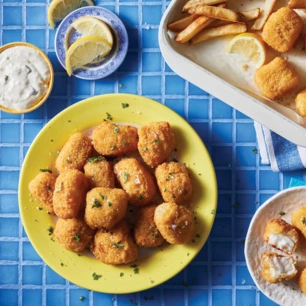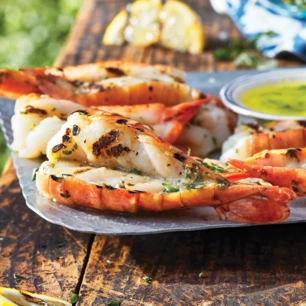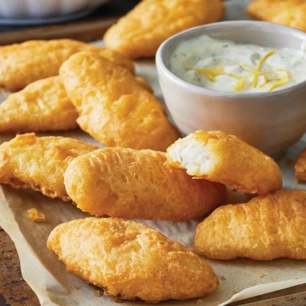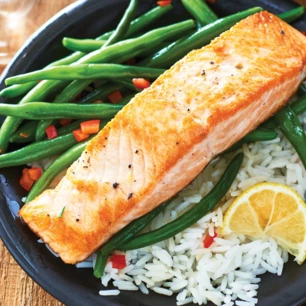Shop online and get $10 off any purchase of $99 or more* from April 25 to May 1. Use promo code APRIL24 at checkout. Learn more.
Sustainable seafood

We are committed to providing sustainable seafood options
Our customers buy M&M Food Market products because they can count on the quality and integrity of the food we sell. We know that it is important to you and your family – and it has always been equally important to us. With many of the world’s fisheries facing significant sustainability issues, M&M Food Market has the social and business responsibility to provide our customers with high quality, sustainable seafood options.
Over 93% of the seafood sourced** by M&M Food Market meets our Sustainable Seafood Policy.
**93% by volume.
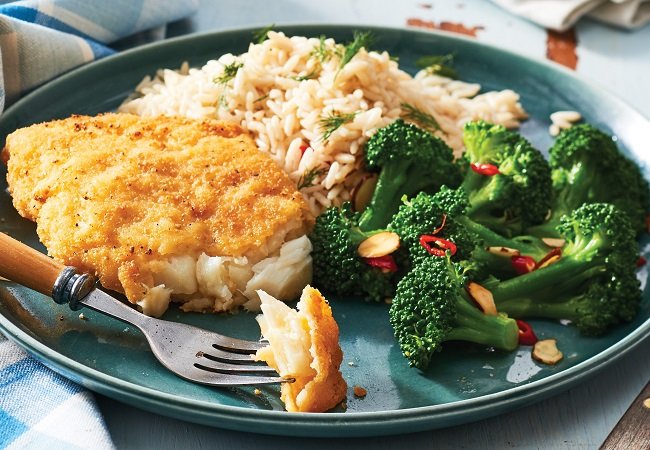
Our sustainability policy
The overall target of the policy is that all of M&M Food Market Seafood products will be sustainably sourced – meaning we will only source wild-caught fish certified to the sustainability standards of the Marine Stewardship Council (MSC), Ocean Wise or equivalent, or from sources actively engaged in a recognized Fishery Improvement Project (FIP) to achieve these objectives; and that our farm-raised fish supplier-partners adhere to Best Aquaculture Practices (BAP) or minimum equivalent. To help us achieve our goal, we have partnered with Sustainable Fisheries Partnership (SFP), a science-based Non-government Organization (NGO) that specializes in monitoring, evaluating, and improving sustainable seafood practices worldwide.
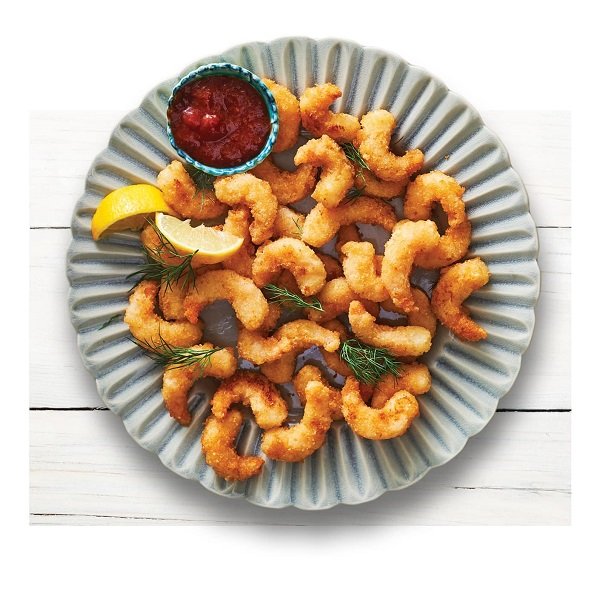
How are we doing?
As of December 2017, we are pleased to report that over 93% of the seafood sourced** by M&M Food Market meets our Sustainable Seafood Policy. We are proud that our supplier partners have embraced our policy and have worked so diligently to help us move closer to our goal. For those sources which have not yet attained our targets, we continue to work with them to meet our requirements while also investigating alternate sources of supply.

Frequently asked questions
Q. What is sustainable seafood?
A. Sustainable seafood is seafood fished or farmed in a manner that can maintain or increase production in the long term, without jeopardizing the health or function of the web of life in our oceans.
Q. Why does sustainable seafood matter?
A. Sustainable fishing guarantees there will be populations of ocean and freshwater wildlife for the future. For thousands of years, people have fished to feed families and local communities. Demand for seafood and advances in technology have led to fishing practices that are depleting fish and shellfish populations around the world. Scientists fear that continuing to fish at this rate may soon result in a collapse of the world’s fisheries. In order to continue relying on the ocean as an important food source, economists and conservationists say we need to implement sustainable fishing practices.
Q. What is the Marine Stewardship Council?A. The Marine Stewardship Council (MSC) is an international non-profit organization set up to promote solutions to the problem of unsustainable fishing. The MSC works with scientists, fisheries, seafood producers and brands around the world to promote sustainable fishing and safeguard seafood supplies for the future.
Fisheries that wish to demonstrate they are well managed and sustainable compared to the science-based MSC standard, are assessed by a team of independent experts who will determine if they meet the MSC standard. The MSC certification applies to wild caught seafood that meets the MSC standard and is sometimes communicated by the blue MSC ecolabel.
Q. What is Ocean Wise?
A. Ocean Wise is a Vancouver Aquarium conservation program created to educate and empower consumers about the issues surrounding sustainable seafood. Ocean Wise works directly with restaurants, markets, food services and suppliers to ensure that they have the most current scientific information and to help them make ocean-friendly buying decisions. The Ocean Wise Certification applies to wild caught seafood that meets the Ocean Wise standard and is sometimes communicated by the Ocean Wise logo.
Q. What is the Aquaculture Stewardship Council (ASC)?
A. Founded in 2010 by WWF and IDH (Dutch Sustainable Trade Initiative) the Aquaculture Stewardship Council (ASC) is an independent not for profit organization with global influence. ASC aims to be the world’s leading certification and labelling programme for responsibly farmed seafood. The ASC’s primary role is to manage the global standards for responsible aquaculture, which were developed by the WWF Aquaculture Dialogues.
ASC works with aquaculture producers, seafood processors, retail and foodservice companies, scientists, conservation groups and consumers to:
- Recognize and reward responsible aquaculture through the ASC aquaculture certification programme and seafood label.
- Promote best environmental and social choice when buying seafood.
- Contribute to transforming seafood markets towards sustainability.
A. The Best Aquaculture Practices (BAP) standards address environmental and social responsibility, animal welfare, food safety and traceability in a voluntary certification program for aquaculture facilities. BAP certification defines the most important elements of responsible aquaculture and provides quantitative, science-based guidelines by which to evaluate adherence to those practices. BAP certification applies to farmed seafood and is sometimes communicated by the BAP logo.
Q. What is FIP?
A. Some commercially important fisheries are not yet managed well enough to meet the standards of credible international arbiters or sustainability such as MSC. This presents many major seafood buyers with a dilemma – they need the products from these fisheries, but are committed to sustainability in their sourcing. A Fishery Improvement Project (FIP) operates via an alliance of seafood buyers, suppliers, producers and other stakeholders who work together to improve a specific fishery by pressing for better policies and management while voluntarily changing purchasing and fishing practices to reduce problems. These projects are predominantly led by industry and other third parties. The FIP’s that M&M sources from meet the Conservation Alliance for Seafood Solutions’ Guidelines for Supporting Fishery Improvement Projects.
Q. What is Sustainable Fisheries Partnership?
A. Sustainable Fisheries Partnership (SFP) is a business-focused NGO that is reshaping the world of corporate responsibility through the creation of powerful information tools and a methodology that allows companies to directly engage with suppliers of natural resources. It does not campaign or provide eco-labels, but works to reduce the barriers to action by industry in creating a more sustainable world. SFP operates through two main principles: information and improvement. For more information, visit www.sustainablefish.org.
* Meets M&M Food Market™ sustainability guidelines.
